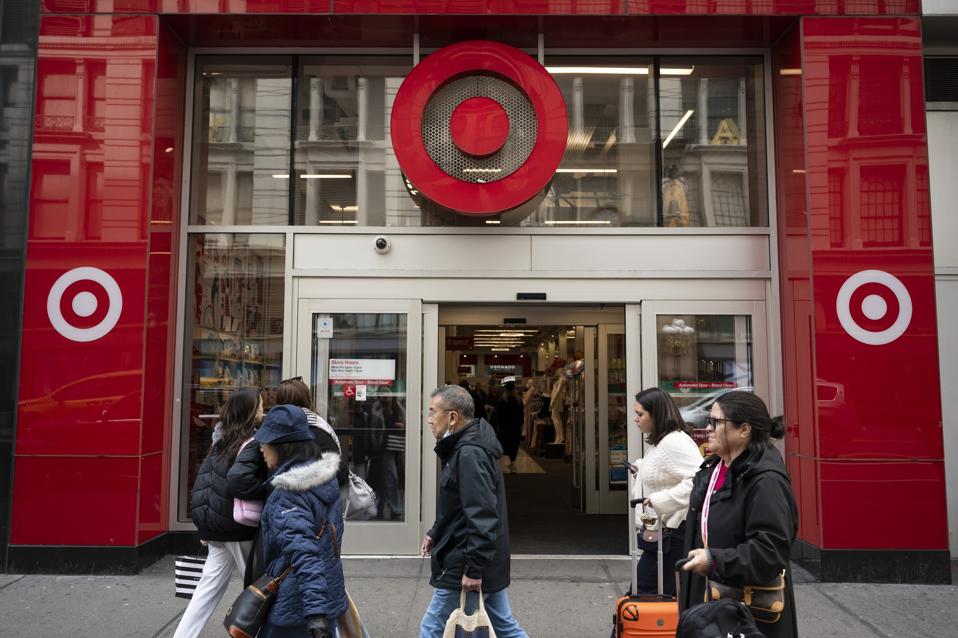Once upon a time, Karen Russell, a kindergarten educator and proud member of the “Black Girls Who Shopped Target” Facebook group, visited a Target store 3 to 4 times a week.
However, as Russell, a Southfield, Michigan resident who’s currently boycotting Target, explained in her email to Target CEO Brian Cornell, the retail giant’s recent policy changes were too much to ignore.
“Shopping at Target once brought me so much joy. It was more than just a store—it was a place where I could find quality products at great prices,” Russell’s email said. “However, Target’s decisions, including the rollback of DEI efforts and the frustrating changes to the Target Circle program, have made it clear that the company is moving away from the inclusivity and values I deeply admired.”
Russell, a national board certified teacher, said she considered the changes a betrayal of her loyalty. “Target’s decision to move away from equity and inclusion was them saying that my dollar didn’t matter,” she said.
Russell is among hundreds of thousands of Americans joining Pastor Jamal Bryant’s 40-day economic boycott during Lent—the period between Ash Wednesday and Easter—that aims to highlight and challenge Target’s rollback on equity commitments.
The movement, which seeks to eliminate a portion of the nearly $23 million in daily revenue that African Americans contribute to Target, is weeks in the making.
For nine consecutive weeks, foot traffic at Target stores declined while stock prices took a hit as investors expressed concerns about consumer boycotts and global trade tensions. While economists cautioned against linking consumer activism directly to financial downturns, civil rights leaders and DEI advocates are still recognizing what they call a potent response to Target’s anticipatory compliance with Donald Trump’s agenda.
“The CEO of Target said their footprint has been shortened because of tariffs and the economy,” said Bryant, senior pastor of New Birth Missionary Baptist Church in Stonecrest, Georgia. “The irony is, he made that comment the same day the tariffs were reversed. While he may not acknowledge the fast’s impact, I think the numbers speak for themselves.”
After the 2020 murder of George Floyd, Target—headquartered in Minneapolis—pledged $10 million to social justice causes and committed to spending $2 billion with Black-owned businesses by 2025. In 2021, they expanded their investment in Black communities to $100 million.
This commitment led to the addition of products from 500 Black vendors to stores nationwide, a move that resonated with customers like Russell.
“Target used to understand the economics of the African American community,” Russell said. “They brought in brands like The Black Collective. The atmosphere was right. The lighting was right. It felt like our space.”
However, as Pastor Bryant noted, something changed at the start of this year.
“They made a public commitment to Black businesses—not as part of DEI or affirmative action, but out of human decency,” Bryant said. “And yet, with President Trump’s return to the White House, they walked away from that covenant.”
As part of the boycott, Bryant has partnered with the U.S. Black Chamber of Commerce to redirect Black consumer dollars toward Black-owned businesses.
“Conscientious citizens are abstaining from supporting Target. The momentum is strong, and people are serious about only patronizing places where they feel respected,” Bryant said.
Bryant is also working with other interfaith and civil rights leaders to steer Black dollars into Black banks and businesses. While one in eight Americans is Black, Bryant notes that just one in 45 bank loans goes to Black borrowers—which he said highlights the need for urgent change.
“We are far from the economic equality that America promises,” he said.
Statistics like that—and Target’s retreat from DEI—have spurred leaders like Dr. Wes Bellamy, former vice mayor of Charlottesville, to renew efforts around voter mobilization and Black entrepreneurship.
“We have to speak not only with our dollars but also with our votes,” Bellamy said. “If Target or its supporters back away from their commitments to the Black community, then those who support them won’t get our support at the ballot box.”
There was a time when the Black dollar circulated within Black communities for six to twelve months. Today, it’s estimated to circulate for just six hours. Bryant and Bellamy hope this moment sparks a revival of Black economic ecosystems like Tulsa’s Greenwood District and Atlanta’s Sweet Auburn.
“We must build our own table,” Bellamy said. “We need direct-to-consumer and direct-to-provider hubs that allow us to support Black-owned businesses more easily.”
Bryant is leading by example. His church will soon host 100 Black vendors in Atlanta. He’s joined by congregations across the country—Dallas’ Friendship-West Baptist Church, Houston’s Wheeler Avenue Baptist Church, Chicago’s Salem Baptist, and New York City’s Allen Cathedral— that are pledging to do the same.
While Russell misses shopping at Target, she has shifted her support directly to Black-owned businesses.
“I loved the Black-owned brands Target carried,” Russell said. “But thanks to this new ‘Green Book’-style site, I now buy directly from those businesses.” .
Boycotters’ demands include restoration of DEI initiatives, investments in historically Black colleges and universities, deposits totaling $250 million into Black-owned banks, and honoring the $2 billion pledge to Black businesses.
As of publication time, Russell has not received a reply to her recent email to Target. In the past, she said, the company was responsive.
Whether or not Target re-engages the Black community, one thing is certain: the power of the Black dollar—and the voices behind it—are not being ignored.

